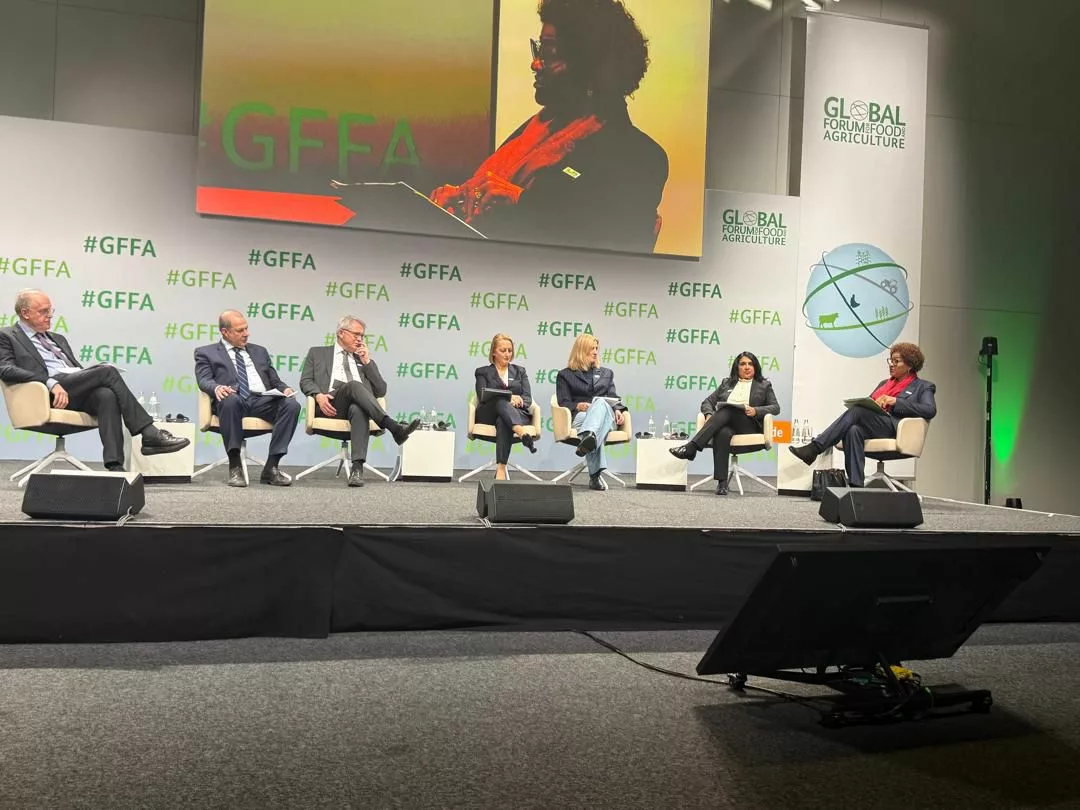|
Getting your Trinity Audio player ready...
|
Berlin, Germany – The continent needs to address the structural challenges that are impeding economic transformation in Africa, which are deeply intertwined with food systems, African Union Commissioner Josefa Correia Sacko reiterated in Berlin.
The Diplomat, who was speaking at the Eleventh German-Africa Conference that takes place from 17-21 of this month, assured that the dependent problems need a combination of efforts of facilitating policy structures, innovations, and financing commitments to achieve the recommended objectives.
He stressed that this makes it even more important to collaboratively align with demand-driven priorities, as well as the constructive engagement of the private sector that is essential for the successful development of the agricultural sector for food and nutrition security worldwide.
“I have met many amazing innovators, policymakers, and investors who are rethinking agricultural practices and food production. It is their commitment, their collective drive, that fuels my passion and gives me hope that we can truly end hunger,” said the outgoing AU Commissioner.
According to her, strategic investments must be made in the sector to unlock its vast potential and take advantage of available tools, knowledge, and the ability to create changes that can lead to transforming agri-food systems to be more inclusive, sustainable, and resilient.
“In this particular, there is no doubt that we must count on the involvement of young people, which is an expressive layer on the continent, supporting them in agro-entrepreneurs in their potential, investing in them and building business ecosystems where they can thrive,” she highlighted.
Josefa Sacko, who is responsible for agriculture, rural development, blue economy, and sustainable environment, said that the World Forum Without Hunger, which was recently organized in Addis Ababa, by the AU, the Government of Ethiopia, the Food and Agriculture Organization of the United Nations (FAO), offered a new perspective and offered long-term solutions to achieve the sustainable development goals.
According to the AU Commissioner, to action and concrete steps to drive the agenda to end hunger and address malnutrition in the world, prioritize income generation to shift the focus from increasing food production to empowering farmers and agribusinesses to generate income and investments in infrastructure, especially in electricity, roads, irrigation, storage facilities to reduce post-harvest losses.
In his view, the challenge facing the fight against hunger is the promotion of intra-African trade by reducing trade barriers and imposing fair competition, as well as innovative financing: such as public-private partnerships and blended financing, to mobilize resources for added value and agribusiness development.
“Although this seems like a daunting challenge, we are facing an urgent challenge, with an unshakable belief, because ending hunger is possible,” she reinforced his position.
According to statistics, at least 733 million people face hunger, 1 in 11 people worldwide and one in five in Africa, according to the latest report on the state of food security and nutrition in the world released by the United Nations specialized agencies at the G20 event in Brazil.






